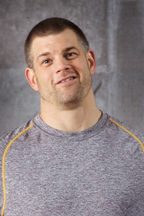
The Ohio State University (OSU) has settled a lawsuit with a CrossFit affiliate over allegations that a study had defamed the gym.
As first reported by Columbus Underground, the university has agreed to pay Mitchell Potterf, owner of Fit Club in Columbus, Ohio, $145,000 to settle claims that a 2013 paper by OSU researchers included false data about injuries suffered by 11 athletes who took part in a fitness challenge. According to a statement filed by Potterf and his attorney, Ken Donchatz, in the Ohio Court of Claims, based on depositions, Continue reading Ohio State, CrossFit gym make six-figure settlement over corrected paper’s injury claims

 A California court ruled that fitness empire CrossFit can proceed to trial with its lawsuit against a competitor, alleging it published falsified data that hurt the company’s reputation, according to recently released court documents.
A California court ruled that fitness empire CrossFit can proceed to trial with its lawsuit against a competitor, alleging it published falsified data that hurt the company’s reputation, according to recently released court documents.



 A researcher charged with embezzlement — and now the
A researcher charged with embezzlement — and now the